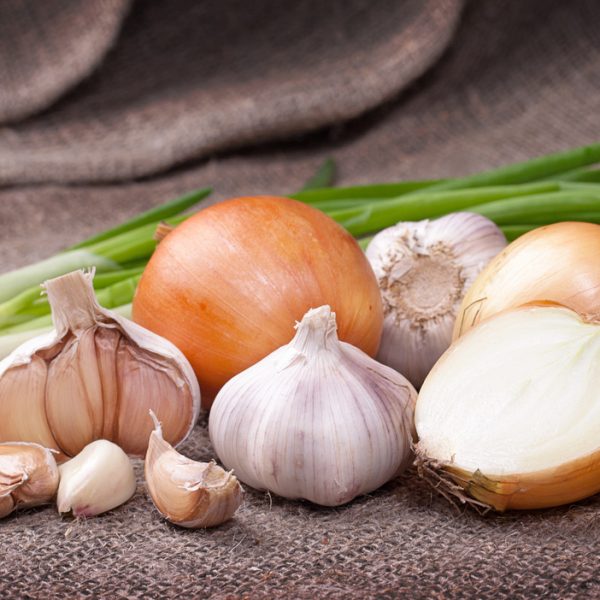Most Toxic Foods for Dogs
 You shouldn’t be afraid to feed your dog “human food”, as long as they are not toxic food for dogs. Giving your dog the right fruits and vegetables can provide a significant nutritional supplement to their diet. Foods like apples, watermelon, and green beans, among many more, can provide fiber and nutrients that your puppy needs and craves or make a healthier treat for them.
You shouldn’t be afraid to feed your dog “human food”, as long as they are not toxic food for dogs. Giving your dog the right fruits and vegetables can provide a significant nutritional supplement to their diet. Foods like apples, watermelon, and green beans, among many more, can provide fiber and nutrients that your puppy needs and craves or make a healthier treat for them.
But then, there are many harmful human foods that we shouldn’t feed to our dogs. So, before you give your puppy anything out of the ordinary, make sure it’s safe. Here are some of the most toxic foods for dogs to make sure you keep out of your pup’s reach:
1. Alcohol
When a dog consumes alcohol in any form, including food that contains alcohol, the consequences can be severe. It may cause vomiting, diarrhea, depression of the central nervous system, tremors, difficulty breathing, abnormal blood acidity, coma, and even death. If your dog ingests alcohol, call your veterinarian or Animal Poison Control Center right away.
2. Chocolate, Coffee, and Caffeine
No matter how sluggish your dog is acting, do not put coffee in their water dish! Kidding. But, sometimes dogs do get into these foods and the consequences can be deadly. Chocolate, coffee, and foods and beverages containing caffeine have a category of substances called methylxanthines in them.
Methylxanthines can cause vomiting, diarrhea, panting, excessive thirst and urination, tremors and abnormal heart rhythm, seizures, and can also be fatal. Because it is more potent, dark chocolate is more toxic to dogs than milk chocolate.
But, if you have any type of chocolate around, keep it well away from your puppy dog — in the top kitchen cabinet or somewhere else that is thoroughly out of reach.
3. Milk
Just like humans, dogs can be lactose intolerant. This means that they don’t have lactose, the digestive enzyme required to break down milk sugar.
When a dog drinks milk, it may cause vomiting, diarrhea, and other digestive problems. Although ingesting milk isn’t fatal, it can cause a lot of intestinal discomfort and discomfort for your dog.
In some cases, it can lead to other issues too or exacerbate an underlying medical condition. And, since vomiting and diarrhea are some of the symptoms you should never ignore in your dog, you’ll also want to take a trip to the vet.
4. Cheese
You may have guessed that since they can’t drink milk, dogs also should not have cheese. They are unable to break down the lactose that cheese also contains. In addition, there are fatty components to cheese that are unfriendly to a dog’s digestive system.
Some dogs may be able to handle a little bit of cheese just fine and you might even use it to help give them a pill when they need to take medicine. But, if your dog is one of the breeds prone to digestive issues anyway, it’s best not to experiment.
5. Onion
Onion is toxic to dogs. It contains chemical compounds that can actually cause a dog’s red blood cells to break down. This causes weakness and a decrease in a dog’s activity level. If a dog eats too many onions, they may need a blood transfusion.
Since onions and seasonings containing them are common during grilling season, keeping dogs away from the grill and food table during backyard barbecues is one of the summer BBQ safety tips for dogs.
6. Macadamia Nuts
It is currently unclear exactly why macadamia nuts are toxic to dogs. But, if ingested, they cause a strong toxic reaction. A dog will develop weakness and begin to have trouble walking once they eat macadamia nuts.
The weakness can happen in any of their legs, but shows up most often in the hind legs. The dog will stagger when they try to walk and may develop depression, shaking and tremors, and hypothermia as well.
7. Garlic
Garlic is part of the onion family. And, since it tends to be more potent than onions, it tends to be even more toxic to dogs. Garlic will turn a dog’s urine orange or dark red and cause immediate weakness and reluctance to move.
The effects on red blood cells take a few days to take hold, but you will notice symptoms immediately. If you suspect your dog has ingested garlic, call your vet for their recommendations.
One of the common dog myths is that table scraps are fine to share with dogs. Some can be, but you need to be careful. It’s tempting to cave in and share your food when your dog is giving you that adorable face. If you don’t mind reinforcing begging behavior and your food is safe for them to have, share away in small amounts.
But, if you’re eating anything that has these toxic foods for dogs or other harmful foods, it’s best to keep it to yourself – no matter how sad your dog looks at missing out. Better for them to miss out than to get sick, develop gastritis, or end up with other health concerns.
